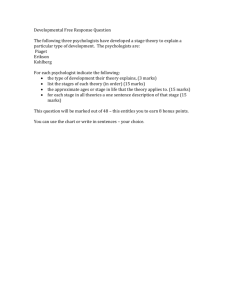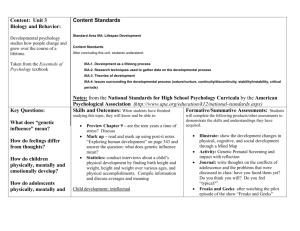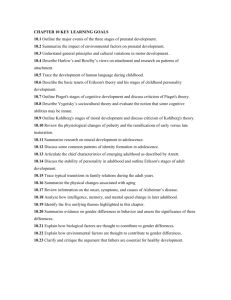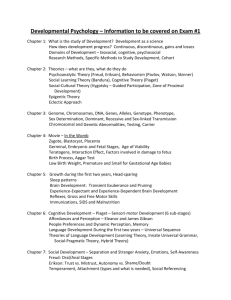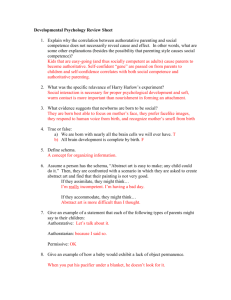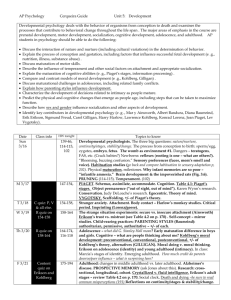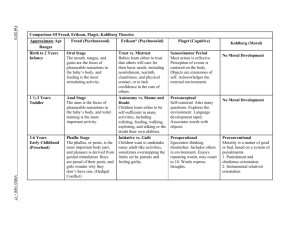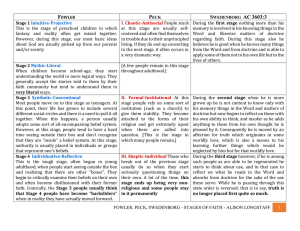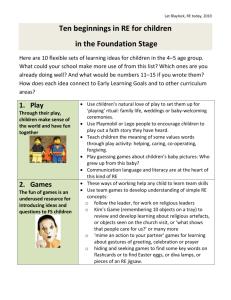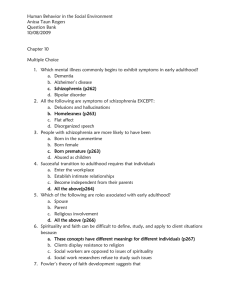Stages of Development: Piaget, Kohlberg, Erikson, Fowler
advertisement
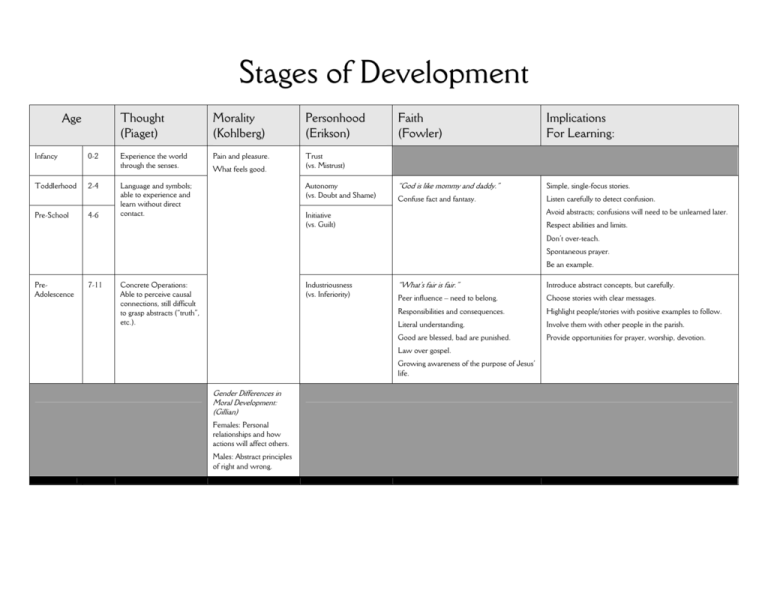
Stages of Development Age Infancy Toddlerhood Pre-School 0-2 2-4 4-6 Thought (Piaget) Morality (Kohlberg) Personhood (Erikson) Experience the world through the senses. Pain and pleasure. Trust (vs. Mistrust) What feels good. Language and symbols; able to experience and learn without direct contact. Autonomy (vs. Doubt and Shame) Faith (Fowler) Implications For Learning: “God is like mommy and daddy.” Simple, single-focus stories. Confuse fact and fantasy. Listen carefully to detect confusion. Avoid abstracts; confusions will need to be unlearned later. Initiative (vs. Guilt) Respect abilities and limits. Don’t over-teach. Spontaneous prayer. Be an example. PreAdolescence 7-11 Concrete Operations: Able to perceive causal connections, still difficult to grasp abstracts (“truth”, etc.). Industriousness (vs. Inferiority) “What’s fair is fair.” Introduce abstract concepts, but carefully. Peer influence – need to belong. Choose stories with clear messages. Responsibilities and consequences. Highlight people/stories with positive examples to follow. Literal understanding. Involve them with other people in the parish. Good are blessed, bad are punished. Provide opportunities for prayer, worship, devotion. Law over gospel. Growing awareness of the purpose of Jesus’ life. Gender Differences in Moral Development: (Gillian) Females: Personal relationships and how actions will affect others. Males: Abstract principles of right and wrong. Age Early Adolescence 12-15 Thought (Piaget) Morality (Kohlberg) Personhood (Erikson) Faith (Fowler) Implications For Learning: Formal Operations: Able to think abstractly and critically. What pleases parents. What fits cultural norms. Identity (vs. Confusion) “I believe what the Church believes.” Encourage their developing ability to question and to think for themselves. Desire religious knowledge. Prefer to explore concepts on their own. Sensitive to what others think about them. More impressed by example than by words. Provide increasingly complex ideas. Help them feel good about what they know. Use factual information and encourage expressions of opinion. Use group-oriented teaching styles. Express your own faith. Late Adolescence 15-18 ”As I see it, God is…” Recognize that “traditional” values/ideas may be rejected. Establish personal identity; seeking independence and individuality. Encourage personal reflective thinking. Like to debate, argue. Listen to their questions and challenges and “unique” ideas as they search for a personal expression of faith. Engage in objective reflection. Affirm, accept, support. Use group processes which encourage personal reflection: conversation, debate, questions, compare/contrast, share. Help them sort through the various messages they receive. Present a wide range of topics and issues; encourage dialogue. Express your own Christian witness in open and nonjudgmental ways. Intimacy (vs. Isolation) “More than just words.” Search for deeper meanings. Be prepared for questions which explore paradoxes and tensions. Middle Adulthood Contribution (vs. Self-Absorption) Seek exchange of ideas. Encourage reflective sharing. Have confidence. Encourage leadership. Old Age Integrity (vs. Despair) Are nonjudgmental. Encourage critical questions about inherited traditions, symbols, etc. Search for meanings and revelations in symbols, rituals, and life experiences. Provide opportunities for self-directed learning. Young Adulthood 18+ Abstract ethical principles. Use these principles to judge others. Can compare and contrast experiences. Gender Differences in Moral Development: (Gillian) Females: Personal relationships and how actions will affect others. Males: Abstract principles of right and wrong.
